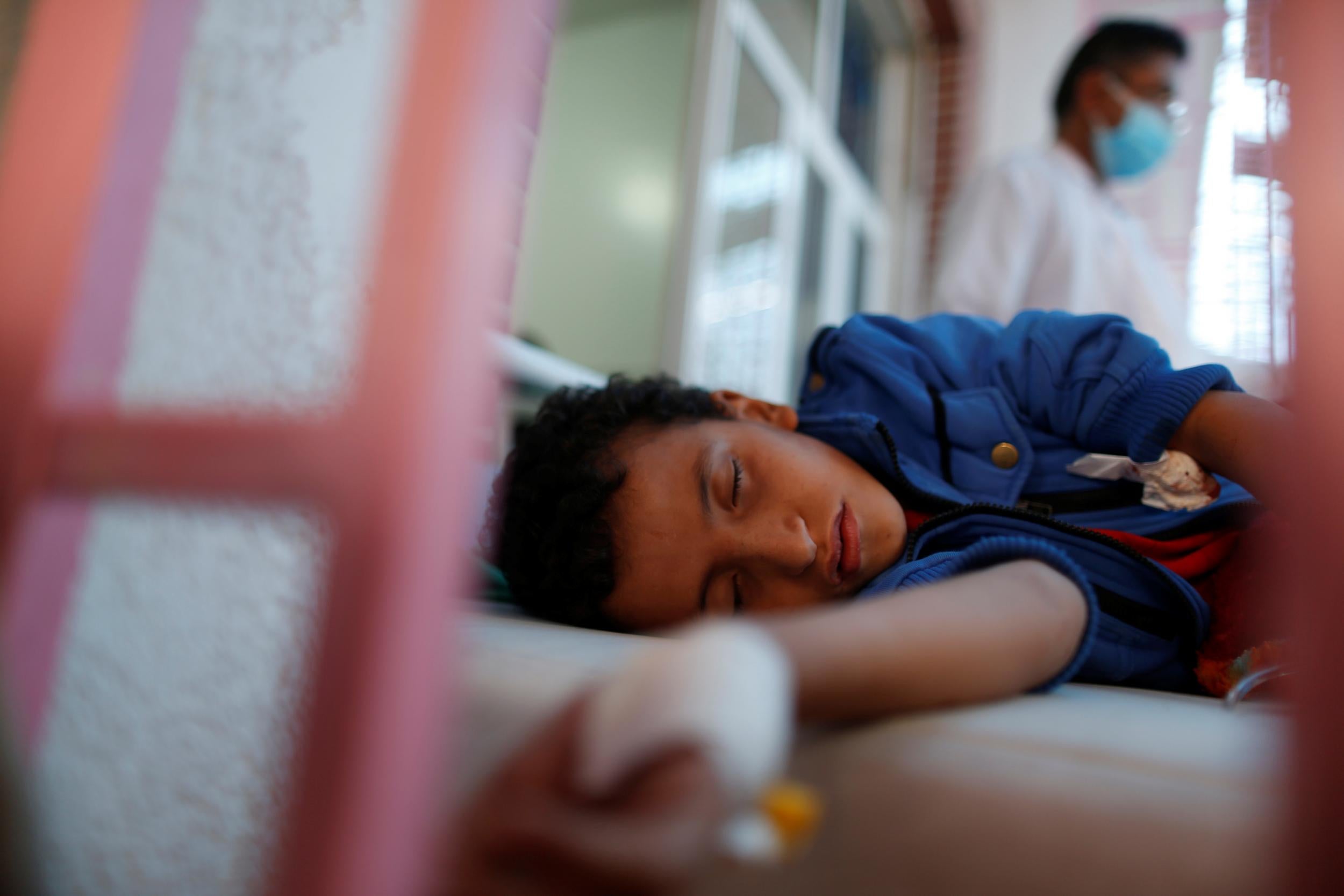Yemen cholera death toll climbs to 1,500 as WHO issues stark warning new cases have increased tenfold
World Health Organisation says war-torn country is currently dealing with up to 5,000 new diagnoses a day

Your support helps us to tell the story
From reproductive rights to climate change to Big Tech, The Independent is on the ground when the story is developing. Whether it's investigating the financials of Elon Musk's pro-Trump PAC or producing our latest documentary, 'The A Word', which shines a light on the American women fighting for reproductive rights, we know how important it is to parse out the facts from the messaging.
At such a critical moment in US history, we need reporters on the ground. Your donation allows us to keep sending journalists to speak to both sides of the story.
The Independent is trusted by Americans across the entire political spectrum. And unlike many other quality news outlets, we choose not to lock Americans out of our reporting and analysis with paywalls. We believe quality journalism should be available to everyone, paid for by those who can afford it.
Your support makes all the difference.At least 1,500 people have died due to cholera and more than 246,000 new cases of the disease have been reported in conflict-riven Yemen in just the past two months, the World Health Organisation (WHO) has said.
The death toll has risen from the 1,300 announced last month, when the number of suspected cases was around 200,000, and there are now 5,000 new diagnoses a day.
The new figures show the disease has increased tenfold in the last two months, Nevio Zagaria, WHO’s representative in Yemen, said at a news conference over the weekend, and now affects 21 of the country’s 22 provinces.
The first outbreak of cholera was confirmed in October 2016, but by May new cases were being diagnosed at a rate three times higher than the initial estimates. Aid organisations warned last month that the epidemic was spreading, with almost one person an hour dying from the water-borne infection.
Cholera – an acute diarrhoeal infection caused by ingestion of contaminated food or water – can kill the young, elderly and otherwise sick in hours if vital fluids are not replaced.
A quarter of the dead so far are children, the UN health agency said.
While easily treatable and preventable with proper sanitation procedures, after more than two years of war the country’s health, water and sanitation systems are on the verge of collapse, making the epidemic very difficult to treat.
Saudi Arabia and its regional partners have used the spectre of Iran to justify an extensive bombing campaign on Yemen’s Shia Houthi rebels at the request of the exiled, internationally recognised Yemeni President Abdrabbuh Mansour Hadi.
The Saudi economic strangulation, blockades on Yemen’s air and sea ports preventing the import of food and medicine and the targeting of vital infrastructure such as roads and bridges – and in some cases civilian buildings such as hospitals – have contributed to the dire situation the country’s 27-million-strong population is now facing.
Less than half of Yemen’s medical centres are still functional. A total of 14.5 million people don’t have regular access to clean water and 7.3 million live on the brink of famine.
The UN estimates $2.1bn (£1.6bn) is needed to stop Yemen completely collapsing into a failed state, but donor governments only pledged half that amount at an aid conference in Geneva in April.
More than 10,000 people have died in the fighting to date, the UN says.
Join our commenting forum
Join thought-provoking conversations, follow other Independent readers and see their replies
Comments